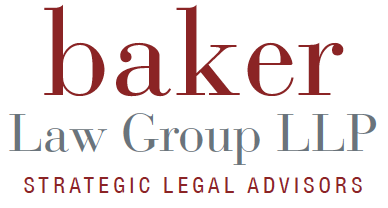Reasonable Accommodation and the Interactive Process in Disability Cases
 One of the biggest sources of conflict between disabled employees and their employers is deciding whether to grant an employee a reasonable accommodation as required by the Americans with Disabilities Act (ADA) and the California Fair Employment and Housing Act (FEHA).
One of the biggest sources of conflict between disabled employees and their employers is deciding whether to grant an employee a reasonable accommodation as required by the Americans with Disabilities Act (ADA) and the California Fair Employment and Housing Act (FEHA).
What is the Interactive Process?
The interactive process is a shorthand way of describing the informal negotiations that occur between an employer and employee as they attempt to find a reasonable solution under ADA and FEHA. This process is critically important because if an employer fails to engage in the interactive process, the refusal to engage can be seen as a violation of disability law in and of itself.
Although there are no set guidelines for how the interactive process should work, it is critical that the employer take steps to work with the employee and to ensure that he or she is notified of the existence of a reasonable accommodation.
Problems that can arise during the interactive process include when the communications between employer and employee come to an impasse or breakdown. For example, if the employer refuses to discuss options or rejects accommodations without reason, despite the proposal being clearly simple fixes and not constituting an undue hardship. In these situations an employer may become liable for failure to engage in the interactive process under California law.
The Case of Wysinger v. Automobile Club of Southern California
For example, in the case of Wysinger v. Automobile Club of Southern California (AAA) (2007) 157 Cal. App. 4th 413 an employee, Wysinger, suffered from lupus and rheumatoid arthritis. After his employer AAA instituted plans to reduce the pay of senior employees, he filed an age discrimination claim and also a claim that the employer failed to reasonably accommodate his disabilities because it failed to discuss options in reducing his commute time. Wysinger had requested a transfer in order to reduce his commute time; however AAA rejected this and did not raise any other possibilities.
The California Court of Appeals found that AAA could not rely on its rejection of Wysinger’s suggestion and claim that Wysinger had the burden to request other reasonable accommodations because it is not up to an employee to request multiple types of accommodation that an employer may choose from. The court upheld that under FEHA failure to engage in the interactive process can be seen as a separate claim from failure to provide reasonable accommodations.
If you have a disability and your employer or former employer failed to discuss reasonable accommodations with you after you told them you needed accommodation, you may be entitled to damages. To learn more, contact the experienced California Employment law attorney Michelle Baker. Schedule your free consultation today by calling (858) 452-0093.
